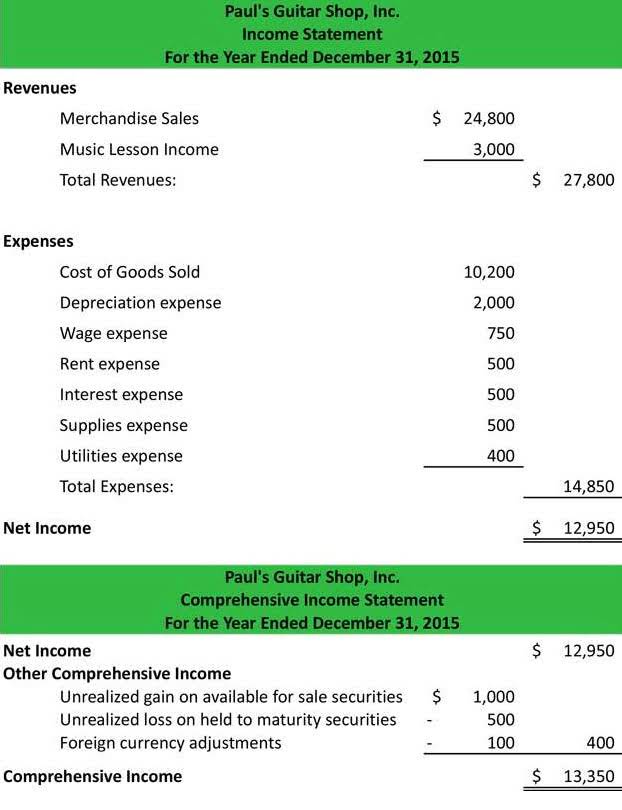
Similarly, letters like “b” and “d” or “p” and “q” are visually similar and often confused, leading to transpositions during writing or typing. The first one is the whole transactions are missing from the accounting record. While the second one is the debit and credit side is not corresponding to the double-entry of the transaction. Typically, we can detect such errors by taking the difference between debits and credits and divide it by 9. If such difference can be divided exactly by 9, the error would be the errors of transposition.
- In this section, we will explore some of the most common types of transposition errors and delve into the various implications they can have.
- The first step often involves a preliminary review of the trial balance to spot any glaring discrepancies.
- Error is considered as an unintended mistake during the course of recordkeeping.
- When an amount is entered as the right amount and the right account but the value is wrong, this is an error of commission.
- Regular analysis of reported errors is crucial for identifying patterns, trends, and potential system vulnerabilities.
- This is one of the accounting errors where transactions have been recorded in accordance with the double-entry at the correct amount.
Principle errors
- The error will show itself as a mistake in data entry when you post a new recording.
- Implement a system to catch and correct errors promptly to avoid creating more problems for yourself.
- Reviewing your trial balance (via your accounting software) is one way to find different types of errors.
- Similarly, in scientific research, a transposed digit in a crucial calculation could lead to inaccurate results and potentially impact the validity of an entire study.
- A transcription error is a specific type of data entry error that is commonly made by human operators or by optical character recognition (OCR) programs.
- While each solution mentioned above has its merits, the best approach to minimizing transposition errors may vary depending on the specific context and requirements.
Therefore, it is crucial to identify and rectify these errors promptly to avoid any potential setbacks. In this section, we will explore the different fields where transposition errors frequently occur and discuss effective strategies to identify and resolve them. These errors can be particularly tricky because they often result in a difference that is divisible by 9, making them somewhat easier to spot. The impact of transposition errors can vary, but they typically lead to discrepancies that can distort financial analysis https://www.facebook.com/BooksTimeInc and decision-making. Regularly reviewing entries and employing automated accounting software can help mitigate the risk of such errors.
Compensating Errors
Although this error may seem small in scale, it often results in substantial financial incongruities that can have a great impact in other areas. Transpositional errors, which tend to occur in accounting firms, brokerages, and other financial services providers, what is one way to check for an error caused by transposed numbers? fall under the broader category of transcription errors. Errors like slide, balancing, and transposition during trial balances lead to the sum of credits not being equal to the sum of debits. Companies prepare it at the end of every accounting period or quarter, or semi-annually or annually.

Sync your bank account with your accounting software
This can throw your books out of balance, compromise the accuracy of your financial statements, and, if not caught, affect your tax liability. If $737 is a transposition of $773, correcting it will increase total credits, so it is marked with an I. This account cannot be the cause of the problem because the difference Certified Public Accountant is only 36, not 360. Double entry (or more) may also be leveraged to minimize transcription or transposition error, but at the cost of a reduced number of entries per unit time. Look for these warning signs when searching for transposition errors in your books.
- Financial tools like accounting software make bookkeeping simpler, but they still need attention to keep errors out of the system.
- These errors occur when digits or characters are unintentionally swapped or inverted during the data entry process.
- If a discrepancy is detected, the system can prompt the user to review and correct the input before proceeding.
- Another type of error is that if the wrong amount is entered in the ledger from the journal, the trial balance will not agree.
- These errors can happen at any stage of financial data entry, including invoices, bank statements, spreadsheets, or accounting records.

For example, checksum algorithms are commonly used in data transmission to detect any changes or errors in the transmitted data. These algorithms generate a unique checksum value based on the data being transmitted, which is then compared with the received checksum value. If the values differ, it indicates the presence of a transposition error, prompting the system to request retransmission. Implementing such error-checking mechanisms not only minimizes the occurrence of transposition errors but also enhances the overall reliability of data transmission and processing. Transposition errors can have a significant impact on the accuracy and reliability of data. Whether it’s a simple switch of two digits or the rearrangement of an entire sequence, these errors can lead to misunderstandings, financial losses, and even legal complications.

